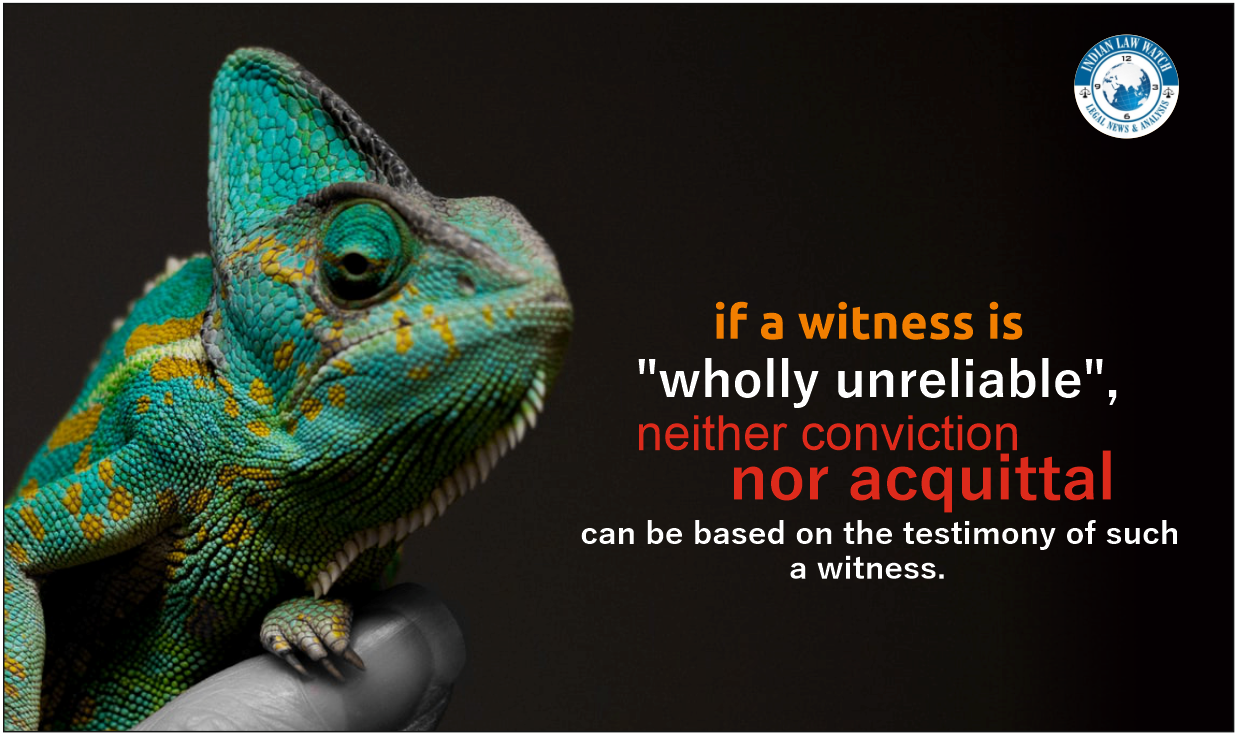

In Mahendra Singh v. State of MP, Cr. A 764/2021 the Supreme Court reiterated the classification of witnesses and observed that if a witness is “wholly unreliable”, neither conviction nor acquittal can be based on the testimony of such a witness.

In the present case, the trial court convicted six accused under Section 148 and 302 read with Section 149 of the Indian Penal Code (IPC). The accused filed an appeal at the Madhya Pradesh High court which was rejected, hence the present appeal.
It was contented by the appellants that the conviction of the appellants is based on the sole testimony of Amol Singh (brother of the deceased), who could not have witnessed the incident and therefore, the conviction based on his testimony is vitiated.



The court noted that witnesses are of three types, viz., (a) wholly reliable; (b) wholly unreliable; and (c) neither wholly reliable nor wholly unreliable. In case the witness is wholly reliable or wholly unreliable, the Court should not have any difficulty in concluding. As if the Court finds that the witness is wholly unreliable, there would be no difficulty in as much as neither conviction nor acquittal can be based on the testimony of such witness. It is only in the third category of witnesses that the Court has to be circumspect and has to look for corroboration in material particulars by reliable testimony, direct or circumstantial.

Based on the facts of the case, the court concluded that Amol Singh is a wholly unreliable witness and hence, no conviction could be based solely on his testimony. The court noted that High Court committed an error by seeing corroboration from the medical evidence which could only establish that the death was homicidal and could not have been used to corroborate the version of Amol Singh that he has witnessed the incident.





